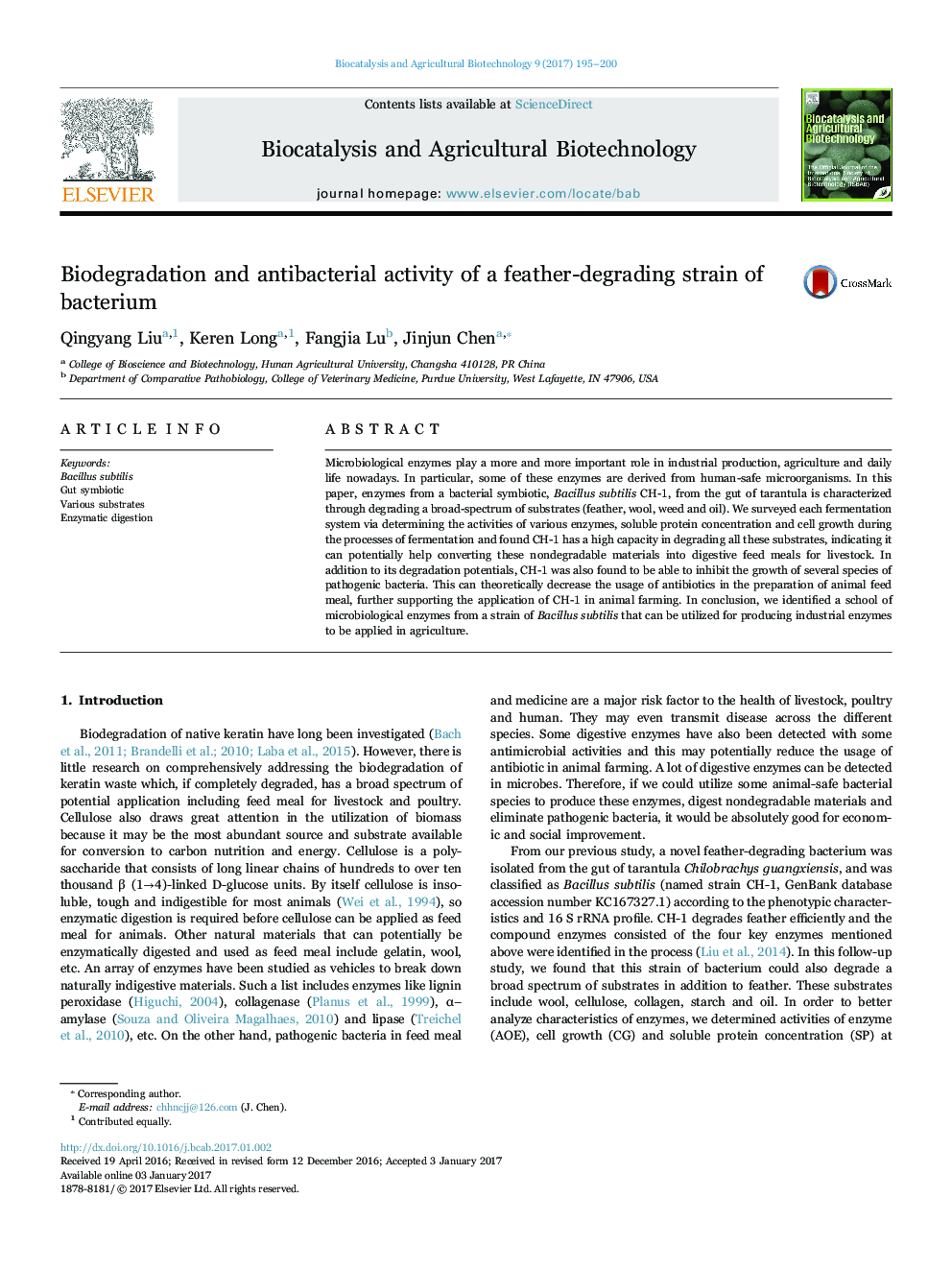| Article ID | Journal | Published Year | Pages | File Type |
|---|---|---|---|---|
| 5520568 | Biocatalysis and Agricultural Biotechnology | 2017 | 6 Pages |
Microbiological enzymes play a more and more important role in industrial production, agriculture and daily life nowadays. In particular, some of these enzymes are derived from human-safe microorganisms. In this paper, enzymes from a bacterial symbiotic, Bacillus subtilis CH-1, from the gut of tarantula is characterized through degrading a broad-spectrum of substrates (feather, wool, weed and oil). We surveyed each fermentation system via determining the activities of various enzymes, soluble protein concentration and cell growth during the processes of fermentation and found CH-1 has a high capacity in degrading all these substrates, indicating it can potentially help converting these nondegradable materials into digestive feed meals for livestock. In addition to its degradation potentials, CH-1 was also found to be able to inhibit the growth of several species of pathogenic bacteria. This can theoretically decrease the usage of antibiotics in the preparation of animal feed meal, further supporting the application of CH-1 in animal farming. In conclusion, we identified a school of microbiological enzymes from a strain of Bacillus subtilis that can be utilized for producing industrial enzymes to be applied in agriculture.
